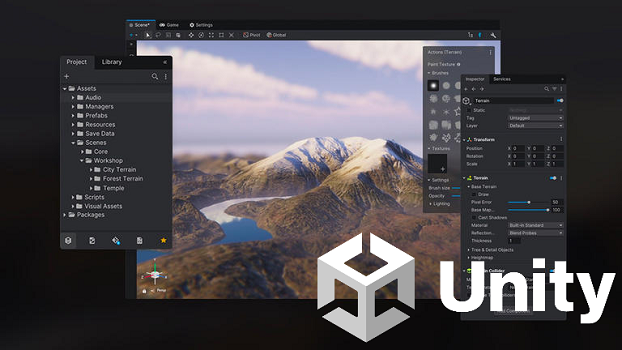Unity Backtracks on Runtime Fee Policy: Changes Made to Support Game Developers

Unity, the popular game development platform, has made changes to its controversial Runtime Fee policy following widespread backlash from game developers. While the fee is not completely going away, Unity has modified it to be more lenient towards smaller developers and games that were already released.
The Initial Announcement

Last week, Unity announced a Runtime Fee that would charge developers up to $0.20 every time someone installed their game. This decision was met with anger and frustration from game developers, who criticized the short notice and retroactive application of the fee. Developers felt that the plan overlooked important aspects such as subscription services, charity bundles, and piracy concerns.
Unity’s Admission of Mistake
In a recent blog post addressing the backlash, Unity’s Marc Whitten acknowledged the company’s failure to incorporate enough feedback before announcing the new policy. Whitten stated, “We should have incorporated more of your feedback before announcing our new Runtime Fee policy.”
Changes to the Runtime Fee
The blog post outlined the changes that Unity has made to the Runtime Fee policy. The fee will no longer apply to games created on Unity Personal or games that made less than $1 million in the last 12 months. For developers using Unity Pro and Unity Enterprise, the fee will only be applicable to games made on the next Long Term Support (LTS) version of Unity. This means that games already released or in development on older versions of Unity will be exempt from the fee.
The Revenue Share Option

To provide an alternative for developers who wish to avoid the fee entirely, Unity has introduced a revenue share option. Developers can choose to give Unity a 2.5% share of their revenue, which may be a lesser amount than what they would pay in fees.
Unity Responds to Developer Backlash
The negative reaction from game developers has clearly influenced Unity’s decision to revise its Runtime Fee policy. The initial plan faced widespread criticism and was widely maligned within the gaming community. Unity’s willingness to listen and make changes demonstrates their commitment to addressing developers’ concerns.

Unity’s decision to backtrack on some of the policies related to the Runtime Fee is a positive step towards fostering a more supportive environment for game developers. It shows that Unity is responsive to feedback and willing to adapt its strategies to better serve its community.
More interesting stuff!
Quick Links
Legal Stuff
Social Media
